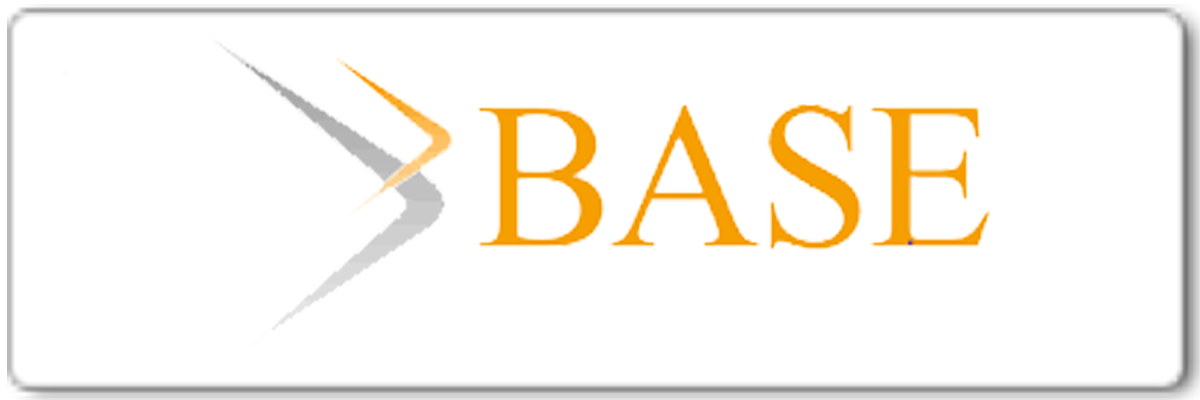The Effect of Distance Learning With Learner Center Micro Teaching Model On Student’ Teaching Confidence and Teaching Skills
Abstract
Keywords
Full Text:
PDF (English)References
Azrai, E. P., Rini, D. S., & Suryanda, A. (2020). Micro-teaching in the Digital Industrial Era 4.0: Necessary or Not?. Universal Journal of Educational Research, 8(4A): 23-30.
Ping, W. (2013). Micro-teaching: a powerful tool to embedding the English teacher certification testing in the development of English teaching methodologies. International Journal of English Language and Literature Studies, 2(3): 163-175.
Bušelić, M. (2012). Distance Learning–concepts and contributions. Oeconomica Jadertina, 2(1): 23-34.
Bağatur, S. (2015). Dismayed or enchanted: ELT students’ perceptions towards microteaching. Procedia-Social and Behavioral Sciences, 199: 770-776.
Remesh, A. (2013). Microteaching, an efficient technique for learning effective teaching. Journal of research in medical sciences: the official journal of Isfahan University of Medical Sciences, 18(2): 158.
Mahmud, I., & Rawshon, S. (2013). Micro teaching to improve teaching method: An analysis on students’ perspectives. IOSR Journal of Research & Method in Education (IOSR-JRME), 1(4): 2320-7388.
Altakhyneh, B. H. (2016). Effectiveness of using Microteaching and Thinking style to Develop Teaching Skills in Arab Open University-Jordan Branch. International Journal of Learning, Teaching and Educational Research, 15(3).
Herrera, R. F., Vielma, J. C., & La Rivera, F. M. O. (2018). Impact of Microteaching on Engineering Students’ Communication Skills. The International journal of engineering education, 34(6): 1768-1775.
Reddy, K. R. (2019). Teaching how to teach: microteaching (a way to build up teaching skills). Journal of Gandaki Medical College-Nepal, 12(1): 65-71.
Kilic, A. (2010). Learner-Centered Micro Teaching in Teacher Education. Online Submission, 3(1): 77-100.
Dagar, V., & Yadav, A. (2016). Constructivism: A paradigm for teaching and learning. Arts and Social Sciences Journal, 7(4): 1-4.
Bilen, K. (2015). Effect of micro teaching technique on teacher candidates’ beliefs regarding mathematics teaching. Procedia-Social and Behavioral Sciences, 174: 609-616.
Christensen, R., Knezek, G., Tyler-Wood, T., & Gibson, D. (2011). SimSchool: An online dynamic simulator for enhancing teacher preparation. International Journal of Learning Technology, 6(2): 201-220.
Ünlü, M. (2018). Effect of Micro-Teaching Practices with Concrete Models on Pre-Service Mathematics Teachers' Self-Efficacy Beliefs about Using Concrete Models. Universal Journal of Educational Research, 6(1): 68-82.
Sen, A. I. (2010). Effects of peer teaching and microteaching on teaching skills of pre-service physics teachers. Egitim ve Bilim, 35(155): 78.
Onwuagboke, B. B. C., Osuala, R. C., & Nzeako, R. C. (2017). The impact of microteaching in developing teaching skills among pre-service teachers in Alvan Ikoku College of Education Owerri, Nigeria. African Research Review, 11(2): 237-250.
Savas, P. (2012). Micro-teaching videos in EFL teacher education methodology courses: Tools to enhance English proficiency and teaching skills among trainees. Procedia-Social and Behavioral Sciences, 55: 730-738.
Karlström, M., & Hamza, K. (2019). Preservice science teachers’ opportunities for learning through reflection when planning a microteaching unit. Journal of Science Teacher Education, 30(1): 44-62.
Chawla, V., & Thukral, P. (2011). Effects of student feedback on teaching competence of student teachers: A microteaching experiment. Contemporary Educational Technology, 2(1): 77-87.
Al Darwish, S., & Sadeqi, A. (2016). Microteaching impact on Student Teacher's Performance: A Case Study from Kuwait. Journal of Education and Training Studies, 4(8): 126-134.
Bakır, S. (2014). The effect of microteaching on the teaching skills of pre-service science teachers. Journal of Baltic Science Education, 13(6): 789.
Shukla, N. (2017). Microteaching: a comparative study of skill development of pupil teachers in relation to their gender. EPRA International Journal of Economic and Business Review, 5(11): 174-179.
Arsal, Z. (2015). The effects of microteaching on the critical thinking dispositions of pre-service teachers. Australian Journal of Teacher Education, 40(3): 9.
Bakır, S. (2014). The effect of microteaching on the teaching skills of pre-service science teachers. Journal of Baltic Science Education, 13(6): 789.
Stewart, J., & Stewart, G. (2010). Correcting the normalized gain for guessing. The Physics Teacher, 48(3): 194-196.
Wahyu, W., & Syaadah, R. S. (2018). Implementation of problem-based learning (PBL) approach to improve student’s academic achievement and creativity on the topic of electrolyte and non-electrolyte solutions at vocational school. JPhCS, 1013(1): 012096.
Albin, S., & Shihomeka, S. P. (2017). Learning from students’ experiences of microteaching for numeracy education and learning support: a case study at University of Namibia, Southern campus. American Scientific Research Journal for Engineering, Technology, and Sciences (ASRJETS), 36(1): 306-318.
Dayanindhi, V. K., & Hegde, S. P. (2018). Effectiveness of microteaching as a method of developing teaching competence among in-service medical teachers. Journal of Advances in Medical Education & Professionalism, 6(4): 155.
Rahimi, A. (2019). Investigating the Contributing Factors Affecting High School Students’ Self-confidence and the Solutions for Enhancement: A Case Study of Arabu Qala High School, Kandahar, Afghanistan. American International Journal of Social Science Research, 4(1): 35-45.
Ralph, E. G. (2014). The effectiveness of microteaching: Five years’ findings. International Journal of Humanities Social Sciences and Education, 1(7): 17-28.
DOI: http://dx.doi.org/10.26737/jipf.v5i3.1834
Refbacks
- There are currently no refbacks.
Copyright (c) 2020 Adrianus Nasar, Melkyanus Bili Umbu Kaleka

This work is licensed under a Creative Commons Attribution-NonCommercial 4.0 International License.
Publisher
Institute of Managing and Publishing of Scientific Journals
STKIP Singkawang
Jl. STKIP, Kelurahan Naram, Kecamatan Singkawang Utara, Kota Singkawang, Kalimantan Barat, Indonesia
Website: http://journal.stkipsingkawang.ac.id/index.php/JIPF
Email: [email protected]
JIPF Indexed by:
Copyright (c) JIPF (Jurnal Ilmu Pendidikan Fisika)
ISSN 2477-8451 (Online) and ISSN 2477-5959 (Print)































